Israel Is Ready to Embrace Europe’s Far Right
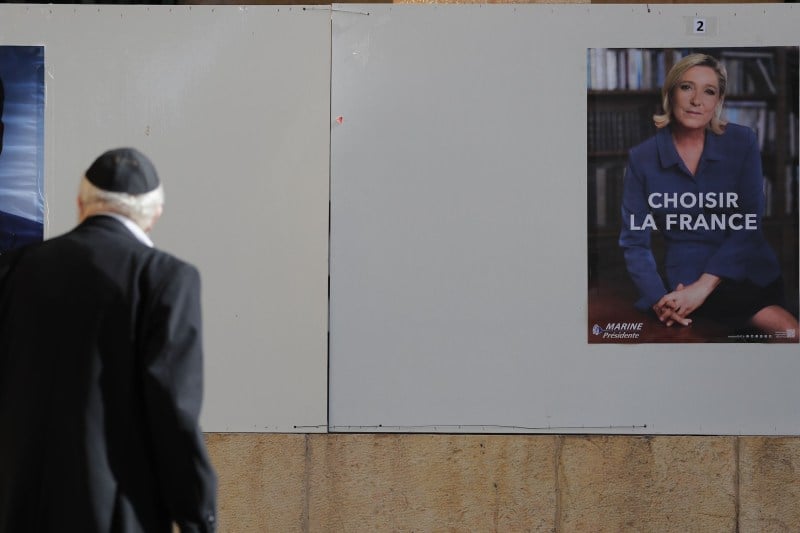
Israel Is Ready to Embrace Europe’s Far Right
European populism’s long tradition of antisemitism isn’t disqualifying for the Israeli government.
A Jewish man looks at an election poster of the independent centrist French presidential candidate Emmanuel Macron next to another of far-right Front National candidate Marine Le Pen at the French consulate in Jerusalem, on May 7, 2017. THOMAS COEX/AFP via Getty Images
In February, Israeli Foreign Minister Gideon Sa’ar instructed his ministry to open quiet talks with far-right parties in France, Spain, and Sweden that had until that time been officially boycotted by the Israeli government. The decision to establish ties with France’s National Rally, Spain’s Vox, and the Sweden Democrats was followed by an invitation to representatives of the three parties along with prominent members of European Jewish communities to attend an international conference in Jerusalem on March 26 and 27 on combating antisemitism organized by Israel’s Ministry for Diaspora Affairs.
The normalization of ties with these political groups has unsettled European Jewry and prompted many international guests to withdraw their participation. “[Inviting them] was stabbing European Jewish communities in the back. Local communities [in the different European countries] must decide whether to take contact with these parties, and the state of Israel should respect the better judgment and the better knowledge of the local Jewish communities,” said Ariel Muzicant, president of the European Jewish Congress, in an interview with Foreign Policy.
In February, Israeli Foreign Minister Gideon Sa’ar instructed his ministry to open quiet talks with far-right parties in France, Spain, and Sweden that had until that time been officially boycotted by the Israeli government. The decision to establish ties with France’s National Rally, Spain’s Vox, and the Sweden Democrats was followed by an invitation to representatives of the three parties along with prominent members of European Jewish communities to attend an international conference in Jerusalem on March 26 and 27 on combating antisemitism organized by Israel’s Ministry for Diaspora Affairs.
The normalization of ties with these political groups has unsettled European Jewry and prompted many international guests to withdraw their participation. “[Inviting them] was stabbing European Jewish communities in the back. Local communities [in the different European countries] must decide whether to take contact with these parties, and the state of Israel should respect the better judgment and the better knowledge of the local Jewish communities,” said Ariel Muzicant, president of the European Jewish Congress, in an interview with Foreign Policy.
Israeli governments had previously maintained a boycott of those parties until this year due to concerns over antisemitism, Holocaust denial, and, more generally, over their ties to fascist or post-fascist movements. But the foreign ministry said it had now concluded that a dialogue with these political groups was worthwhile after assessing four factors: their stance on Israel, their attitudes toward local Jewish communities, how Jewish communities in their respective countries view them, and whether they have actively confronted their antisemitic legacies.
Until last year, Israel had avoided any ties with the French far-right party since its foundation. Jean-Marie Le Pen, who founded the National Front, which then became the National Rally, was well-known for his hate speech against Jews, for which he collected various convictions. His daughter Marine Le Pen, who was the party’s president from 2011 to 2021 and now leads the group in the National Assembly, has gone to great lengths to distance herself and the party from its antisemitic roots and has openly supported Israel in its war against Hamas.
In Sweden, the Democrats have long attracted criticism for tracing their roots in neo-Nazism, although over the past few years they have expelled extremists and gained support due to their tough stance on migration and their law-and-order political platform. Spain’s Vox, whose critics brand it as a neo-Francoist movement, campaigns for the restriction of access to abortion and canceling legislation on gender-based violence, as well as having attracted supporters with neo-Nazi affiliations.
All three parties came from the fringes of national and European politics to become mainstream political actors and gain considerable weight in their countries. Still, the Israeli leadership’s decision sparked broad criticism across European Jewish communities.
Bernard-Henri Lévy, a French philosopher and staunch supporter of Israel, who was supposed to deliver a keynote speech at the conference, decided not to go, as did the U.K.’s chief rabbi, Ephraim Mirvis, after becoming aware of the attendance by populist far-right politicians.
The Jewish community of Rome, the European Jewish Congress, the American Jewish Committee, and the World Jewish Congress also withdrew from the conference.
“It’s difficult for us to see that government ministries in Israel are drawing closer to politicians holding antisemitic positions in their own countries,” Volker Beck, a former member of the German parliament and president of the Germany-Israel Friendship Society, who also decided not to attend the conference, told the Israeli diaspora parliamentary committee a few days ahead of the conference.
“If we want to preserve the global battle against antisemitism, there should be a joint call by the political mainstream throughout the democratic world. You can’t only reach out to the far right.”
Several analysts argue that the recent rapprochement with the European far-right parties is part of a strategy pursued by the leadership of Prime Minister Benjamin Netanyahu in the past and fits within the approach followed by Israel on many occasions, historically.
“Establishing these relationships is both grotesque and not entirely new for this particular Israeli leadership,” said Dahlia Scheindlin, a political strategist and fellow at the Century Foundation think tank. “It has generally placed political and realist interests over the kinds of qualities that you would think would deter it from a moral perspective.” The ties that under Netanyahu’s leadership Israel established with far-right parties in Hungary and Poland are examples from the more recent past, she said.
Critics say Israeli and European far-right parties share the same hostility toward human rights, the European Union and, more generally, liberal values. This would make them natural allies. Others say that the rapprochement isn’t based on shared values, but that it has been triggered by the widespread criticism of Israel’s conduct of the war in Gaza. “Since the left is very critical of Israel after Oct. 7, they are looking for other friends and partners in Europe,” Muzicant said. At the same time, for the European far-right parties it can be a way to burnish their credentials and get a “kosher stamp,” he said.
Several European Jewish leaders lament the fact that since the brutal attack perpetrated by Hamas on Oct. 7, 2023, which sparked the war in Gaza, they have experienced a growing number of antisemitic acts and perceive their home countries as increasingly hostile, to the point that 57 percent of European Jews are considering emigrating from the continent, according to data circulated by the European Jewish Congress.
They feel that while they constantly express their solidarity with Israel and defend it against criticism in their countries, Israel’s ties with right-wing parties make their job more difficult. “We don’t see how this benefits Israel,” Yonathan Arfi, head of the Representative Council of the French Jewish Institutions, told Israeli newspaper Haaretz, talking about the end of the boycott of the National Rally. “But we clearly see how it harms French Jewry—by fueling the demonization of both Jews and Israel through their association with Europe’s far right.”
France is home to an estimated 500,000 Jews, making it the world’s third-largest Jewish population, after Israel and the United States, according to the World Jewish Congress. Arfi added that while Israel has every right to set its own foreign policy, the “Israelis need to understand that it also impacts Jewish communities abroad.”
The recent rift added to the growing sense of alienation of parts of the Jewish diaspora in Europe caused by the devastating—and ongoing—war in Gaza, which has caused the deaths of tens of thousands of Palestinians, without obtaining the return of all the hostages kept by Hamas in the war-torn strip. Since the war in Gaza began, groups of European Jews—for instance, in France and Germany—have publicly manifested their dissent on the destruction and onslaught Israel is causing in the strip.
In one of the latest signs of such estrangement in the diaspora, more than 200 Jewish Italians signed in late February an appeal against the “ethnic cleansing” in Gaza, prompted by the proposal of U.S. President Donald Trump to take over the enclave and turn it into a riviera, which included the displacement, at least temporarily, of its inhabitants.
The appeal, which was signed by some well-known members of Italian Jewry, asked the Italian government to distance itself from Trump’s plan and the growing violence in the occupied territories of the West Bank by Israeli authorities and Jewish settlers against the Palestinians.
Yet prominent Jewish leadership in Italy didn’t sign the appeal and criticized the signatories, also because it was published on Feb. 26, the day on which the funeral of Israeli hostages Shiri Bibas and her two little sons was held in Israel. Footage of terrified Bibas, clutching her two sons—9-month-old Kfir and 4-year-old Ariel—as they were taken to Gaza by militants is seared into Israel’s collective memory, and the plight of this Israeli family has come to embody the profound grief still permeating the country.
“It’s jarring and horrible that just today appeals against the ‘ethnic cleansing’ in Gaza appeared on newspapers, sullying—just when the funerals of Shiri and her little children were held—the legitimate war of Israel against the absolute evil of Hamas,” said Victor Fadlun, president of the Jewish community in Rome. “The community is with Israel, which is fighting the toughest war of survival since its foundation.”
For some Italian Jews, the harsh reactions to the appeal are a sign of how the rifts within the diaspora have deepened over the past months. “The polarization within the Jewish communities is such that some accused me and others who signed the appeal of being ‘traitors,’” said Gad Lerner, a prominent Jewish Italian journalist from Milan. “I see these rifts are clearly getting worse.”
Giovanni Legorano is a journalist based in Italy.
More from Foreign Policy
-

Eight people dressed in camouflage military combat uniforms wade across a river, the water up to their waists. The soldiers carry large backpacks along with their rifles. Snowcapped mountains and a thick forest of evergreen trees loom in the distance. Get Ready for the Aleutian Island Crisis
As conflict heats up in the Arctic, foreign adversaries eye Alaskan territory.
-

U.S. President Donald Trump speaks to reporters before boarding Air Force One at Morristown Municipal Airport in Morristown, New Jersey, on April 27. Trump’s First 100 Days Reveal a ‘Strongman’s’ Unprecedented Weakness
No U.S. president has ever surrendered global power so quickly.
-

An elderly man and woman sit on the ground, the man on his knees as he sorts through something on the ground. Behind him are a rusted cart and bicycle in front of a paint-smeared concrete wall and a battered corrugated metal sign with the words USAID: From the American people” on it. What Trump’s New Budget Says About U.S. Foreign Policy
The president wants to significantly pull back on many of America’s traditional global engagements while spending more on the border and defense.
-

U.S. President Donald Trump listens to Secretary of State Marco Rubio at a cabinet meeting in the White House in Washington, D.C. Rubio’s Reorganization Plan Is a Wrecking Ball
The State Department revamp goes far beyond streamlining—it will devalue human rights and strip away critical expertise.

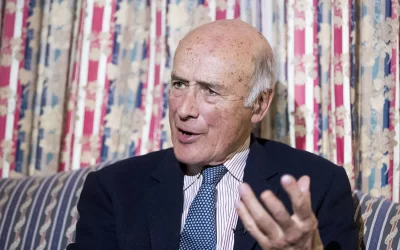




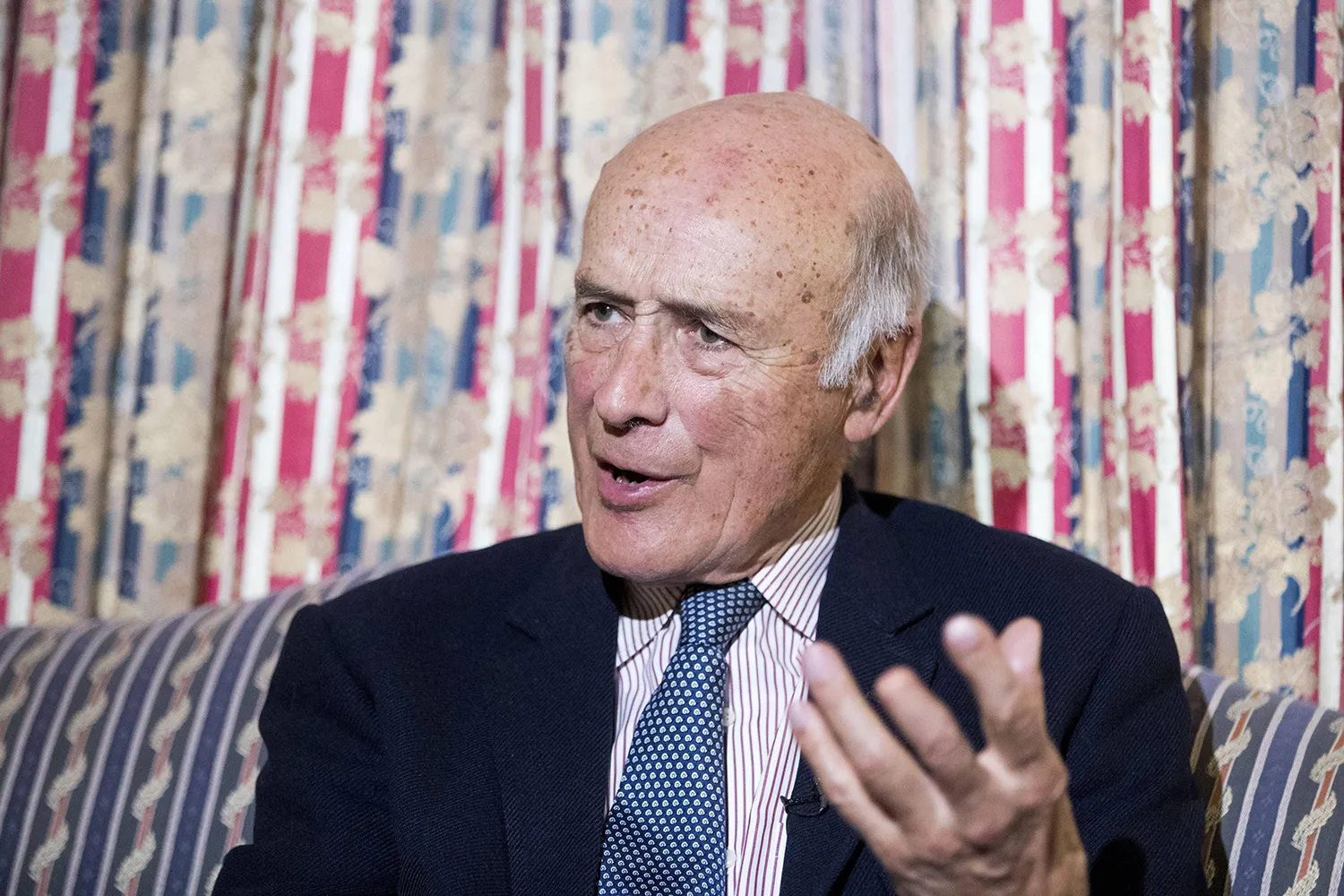
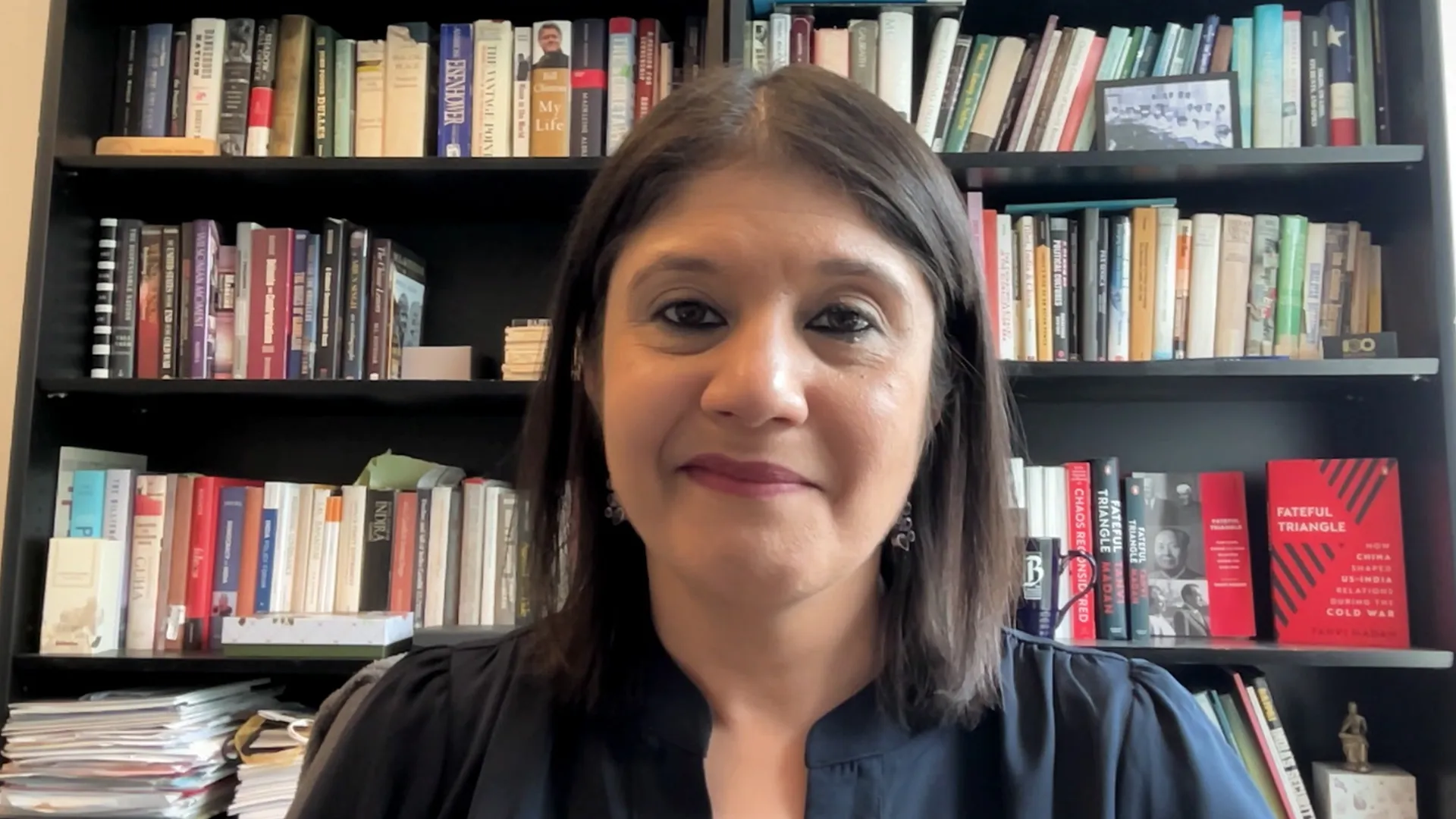
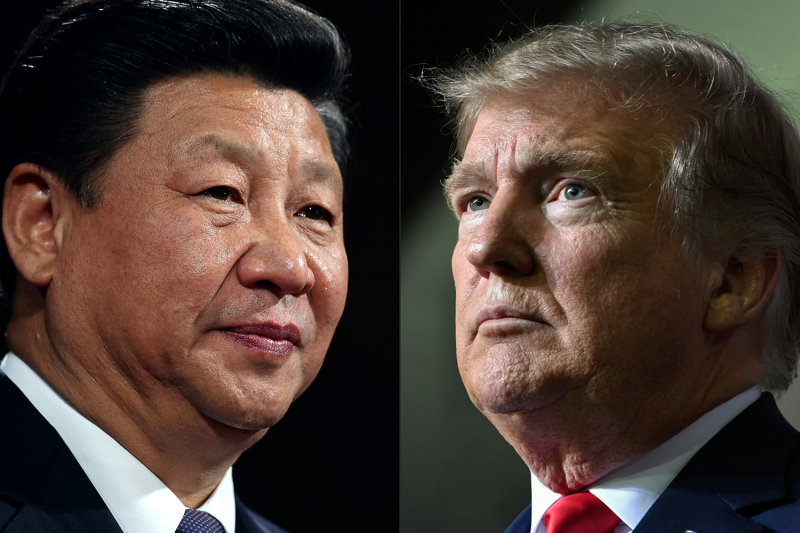

Join the Conversation
Commenting on this and other recent articles is just one benefit of a Foreign Policy subscription.
Already a subscriber?
.
Subscribe
Subscribe
View Comments
Join the Conversation
Join the conversation on this and other recent Foreign Policy articles when you subscribe now.
Subscribe
Subscribe
Not your account?
View Comments
Join the Conversation
Please follow our comment guidelines, stay on topic, and be civil, courteous, and respectful of others’ beliefs.
Change your username |
Log out
Change your username:
CANCEL
Confirm your username to get started.
The default username below has been generated using the first name and last initial on your FP subscriber account. Usernames may be updated at any time and must not contain inappropriate or offensive language.